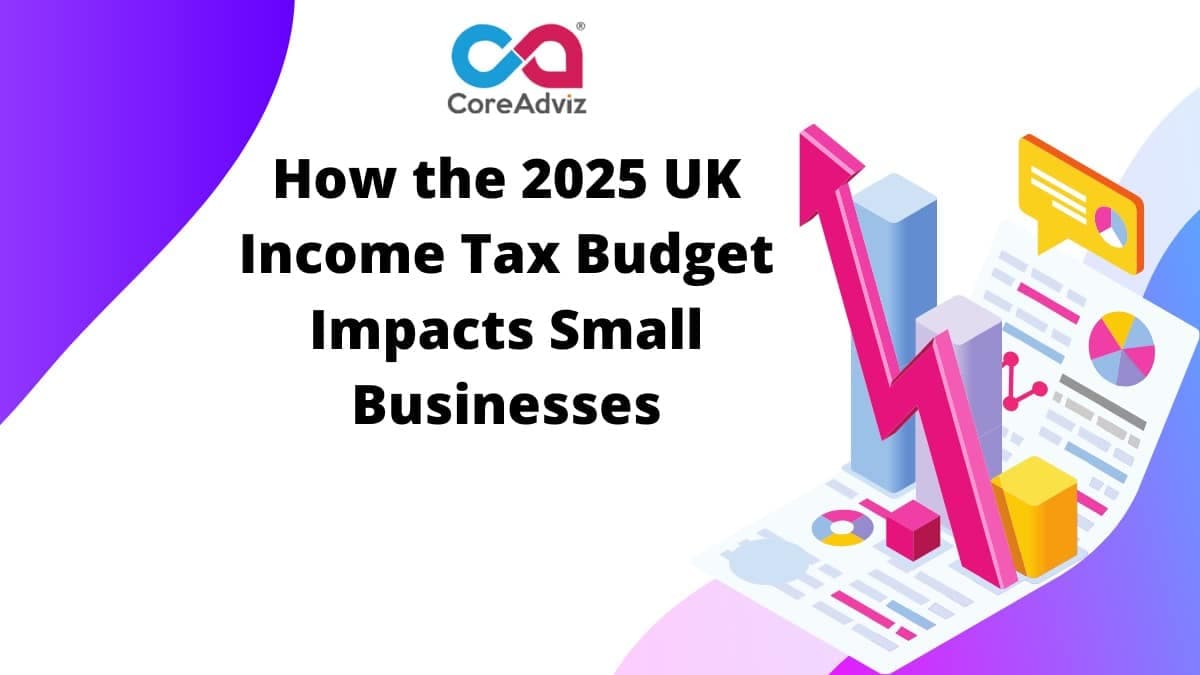
HomeBlog How the 2025 UK Income Tax Budget Impacts Small Businesses
How the 2025 UK Income Tax Budget Impacts Small Businesses
Kausik MukherjeeSmall Business
The 2025 UK income tax budget, scheduled for release on 26 March 2025, introducing several significant updates that will impact small businesses. Changes to National Insurance Contributions (NICs), thresholds, and disposable income are set to challenge small business owners. However, with the right strategies and expert guidance, businesses can mitigate these challenges and adapt effectively.
This article gives an overview of the key changes in the budget, their implications for businesses, and actionable strategies to maintain financial stability.
Key Updates in the 2025 Income Tax Budget
1. Increased National Insurance Contributions (NICs) Rates
Employers will face an increase in NIC rates, requiring small businesses to allocate a larger portion of their budget to payroll costs.
Implications for Small Businesses:
Higher Employer Costs: Increased NIC liabilities may restrict investment in growth areas like marketing, technology, and employee training.
Cash Flow Challenges: Effective cash flow management becomes essential to meet these new obligations on time.
2. Reduced NICs Threshold
The reduction in the Employer NICs threshold means businesses will begin paying NICs on lower levels of employee earnings. This contrasts with employees who will contribute NICs only on larger income amounts, potentially adding complexity for businesses.
Implications for Small Businesses:
Reduced Hiring and Salaries: Employers may find themselves implementing cost-saving measures, such as reducing salaries or limiting hiring, to balance their budgets.
Impact on Consumer Spending: Lower disposable incomes could result in reduced customer spending, particularly affecting businesses in retail, leisure, and service-focused sectors.
3. Broader Financial Implications
The combination of higher NICs and lower thresholds will have broader financial effects. Small businesses may delay expansion plans, adjust their workforce strategies, or re-evaluate operational efficiency to adapt.
Examples:
Start-ups and SMEs may defer hiring plans to reduce costs.
Owner-managed businesses could need to reassess personal expenses, especially for sole traders impacted by tighter disposable incomes.
Strategies to Navigate the 2025 Budget Challenges
Small businesses can employ various strategies to address these challenges, minimise risks, and adapt to the new economic environment.
1. Utilise the Employment Allowance
The Employment Allowance allows small businesses to reduce their NIC liabilities. With the allowance now increased to £10,500 per year, eligible businesses can alleviate the impact of higher NIC rates.
Steps to Take:
Review your eligibility for the Employment Allowance annually.
Consult with a small business accountant to incorporate the allowance into your financial planning.
2. Conduct a Cost Review
Undertaking a thorough review of business expenditures can reveal opportunities to optimise costs while ensuring investments in growth areas are prioritised.
Suggestions:
Automate Repetitive Tasks: Tools like cloud-based accounting software can save time and reduce administrative costs.
Negotiate Supplier Fees: Review existing contracts and negotiate for more favourable terms.
Shared Services: Outsource non-core activities like IT or bookkeeping to trusted providers, such as CoreAdviz’s outsourced accounting services, to cut costs without sacrificing quality
3. Review Employee Retention Strategies
Given the challenges associated with reduced disposable income and employment costs, small businesses can enhance retention through non-salary benefits.
Ideas for Retention:
- Offer flexible working arrangements to improve staff satisfaction.
- Provide training opportunities to help employees learn and grow.
- Develop wellbeing initiatives that support mental and physical health.
4. Strengthen Customer Connections
With reduced consumer spending likely, customer retention will be key. Focus on providing exceptional service and demonstrating value to your target audience.
Action Points:
- Launch loyalty programmes to reward recurring customers.
- Gather customer feedback to adjust your offerings to their needs.
- Collaborate with complementary businesses to increase reach and share costs.
5. Invest in Financial Guidance
Accessing professional financial advice can help you manage the complexities of tax reforms more effectively. Working with an experienced accountant for small business in London or across the UK ensures you’re fully prepared to tackle these challenges.
Options:
- Hire a financial consultant or advisor on a part-time basis.
- Use modern accounting services for regulatory compliance and proactive tax planning.
Why Choose Professional Accounting Services for Small Businesses?
Navigating the complexities of the 2025 UK budget requires precise planning and expert insights. By partnering with a trusted accounting firm like CoreAdviz, you gain access to tailored financial solutions and services, including payroll management, bookkeeping, and tax preparation.
Qualified accountants for small businesses can help you stabilise your operations, optimise your tax liabilities, and introduce measures to sustain growth.
Stay Resilient in the Face of Change
While the 2025 UK income tax budget presents challenges, it also offers opportunities for small businesses to innovate and thrive. With the right strategies, financial expertise, and proactive planning, you can position your business for success, even in a shifting economic landscape.
If you’re seeking a knowledgeable tax accountant for small business or accounting solutions tailored to your needs, don’t hesitate to contact CoreAdviz. Our team of experts is here to support you in making informed financial decisions that empower your business to grow.
Need help keeping your accounts in check?
Visit our Small Business Accounting Services page to learn more about how we can assist with your needs.


